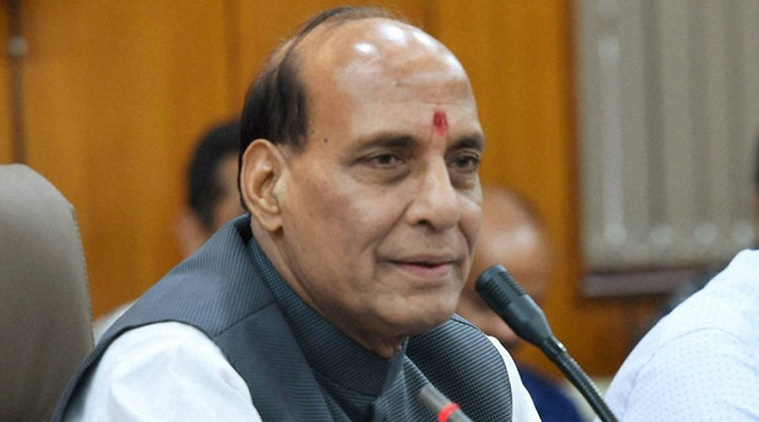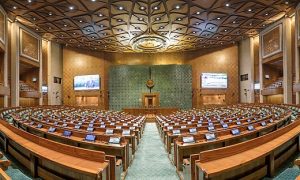 The Government today reiterated its commitment towards sustainable development through rule of law and to provide environmental governance and take policy-based decisions. Delivering the valedictory address at the conclusion of the three-day International Conference on Rule of Law for Supporting 2030 Development Agenda here today, the Union Home Minister, Shri Rajnath Singh, said that sustainable development is not possible without rule of law and that peace and harmony are essential for sustainable development. He said that the global community has noted the need to reduce violence in all forms and promote rule of law at both, the national and international level.
The Government today reiterated its commitment towards sustainable development through rule of law and to provide environmental governance and take policy-based decisions. Delivering the valedictory address at the conclusion of the three-day International Conference on Rule of Law for Supporting 2030 Development Agenda here today, the Union Home Minister, Shri Rajnath Singh, said that sustainable development is not possible without rule of law and that peace and harmony are essential for sustainable development. He said that the global community has noted the need to reduce violence in all forms and promote rule of law at both, the national and international level.
The Home Minister said that the United Nations’ 2030 Agenda and Sustainable Development Goals (SDGs) adopted by more than 190 nations in September last year, are complex and enormous to achieve. Shri Singh said that the world today feels the need for an ever more proactive, responsive, innovative and inclusive approach towards development. He emphasized that in a world where prosperity and material wealth is held by a small minority, the SDGs should be more focused on reducing the gap between the haves and have-nots.
Reiterating the government’s commitment to provide environmental governance, Minister of State (Independent Charge) of Environment, Forest and Climate Change, Shri Prakash Javadekar, highlighted the need to take policy-based decisions and not indulging in discrimination. He said that processes will be transparent and aimed at ensuring compliance. The Minister said that the judiciary can be a guiding force and can ensure compliance. He added that the executive and judiciary must work together to ensure sustainable development. The Minister emphasized that poverty eradication is the goal, both for the judiciary and the executive and pointed out that the nation needs both – environmental protection, as well as growth.
Highlighting the importance of coal in meeting the nation’s energy requirements, Shri Javadekar said that India’s coal consumption, in absolute terms, is nearly 50% of what the Western nations consume.
The Environment Minister said that the government will study the recommendations from the deliberations at the conference, as the government believes in dialogue and different opinions.
Minister of State (Independent Charge) of Coal, Power and Non Renewable Energy, Shri Piyush Goyal said that the government remains committed towards making the nation energy-efficient in a sustainable manner. He reiterated the government’s commitment to ensure safety and protection of environment, even as the government moves towards ending poverty and achieving 24×7 power for everyone. The Minister said that the cess of Rs. 400 per tonne on clean coal is being used for ‘Namami Gange’ and for encouraging the use of renewable energy.
Highlighting some of the initiatives of his Ministry, Shri Goyal said that the government aims to provide 24×7 affordable energy for everyone by the year 2019. Recalling the Prime Minister’s announcement on August 15, 2015 on setting the target of providing electricity to 18,452 villages within 1000 days, Shri Goyal said that out of this, 6,114 villages have received electricity. He added that work in another 924 villages has been completed. He highlighted research on clean coal technology and the target set by Prime Minister, of raising the target of renewable energy output from 34 MW to 175 MW within seven years, as some of the other key initiatives of the Ministry.
Justice J.S Khehar delivered the keynote address, while Chairperson of National Green Tribunal, Justice Swatanter Kumar welcomed the delegates at the valedictory session. Shri Ranjit Chatterjee, expert member, NGT gave the vote of thanks.








